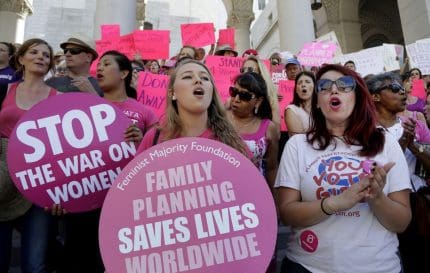Europe bans American travelers as virus surges in several states
The European continent on Tuesday reopened to visitors from 14 countries — but not the United States.

The European continent on Tuesday reopened to visitors from 14 countries but not the United States, where some of the states that pushed hardest and earliest to reopen their economies are now in retreat because of an alarming surge in confirmed coronavirus infections.
The European Union’s decision came a day after Arizona Gov. Doug Ducey closed bars, gyms, movie theaters, and water parks, and officials in Republican and Democratic strongholds alike mandated the wearing of masks.
The EU extended its ban on visitors not just from the United States but from China and from countries such as Russia, Brazil, and India, where infections are running high. Britain dropped out of the EU in January and maintains its own rules, requiring arriving travelers to go into 14-day self-quarantine.
Donald Trump suspended the entry of most Europeans in March.
American make up a big share of Europe’s tourism industry, and summer is a key period. More than 15 million Americans travel to Europe each year, while some 10 million Europeans head across the Atlantic.
The news was a blow to revenue-starved shopkeepers hoping for a summertime boom.
“Americans were 50% of my clientele,” said Paola Pellizzari, who owns a mask and jewelry shop on the Saint-Louis island in the heart of Paris and heads its business association. “We can’t substitute that clientele with another.”
The Louvre museum is scheduled to reopen July 6. Americans used to be the largest single group of foreign visitors to the home of the “Mona Lisa.”
“When I returned after lockdown, five businesses had closed,” Pellizzari said. “As days go by, and I listen to the business owners, it gets worse.”
Sharmaigne Shives, an American who lives in Paris, said she hopes her countrymen can turn things around soon.
“Paris isn’t Paris when there aren’t people who really appreciate it and marvel at everything,” she said. “I miss that. Seriously, I feel the emotion welling up. It’s so sad here.”
Across the English Channel, things are also headed in reverse in places.
Britain reimposed a lockdown in Leicester, a city of 330,000 people that officials said accounted for 10% of all new coronavirus cases in the nation last week. Stores closed their doors, and schools prepared to send children home.
“I opened my shop last week for the first time and saw an instant increase in orders, and now I worry this change will go back to no orders,” said James West, who runs a design and printing business in Thurmaston, just outside Leicester.
The coronavirus has been blamed for over a half-million deaths worldwide, including about 130,000 in the U.S., where the number of confirmed infections has rocketed over the past month to around 40,000 per day, primarily in the South and West. A large share of the cases are among young people who are going out again to bars and restaurants.
States such as Texas, Florida, and California are backtracking, closing beaches and bars, or rolling back restaurant restrictions in some cases.
“Our expectation is that our numbers next week will be worse,” Ducey said in Arizona, where for seven times in 10 days, the number of new cases per day has surpassed the 3,000 mark.
Also Monday, Los Angeles announced it will close beaches and ban fireworks displays over the Fourth of July. And New Jersey’s governor said he is postponing the restarting of indoor dining because people have not been wearing masks or complying with other social-distancing rules.
Recommended

Biden campaign launches new ad focused on Affordable Care Act
Former President Trump has said he wants to do away with the popular health care law.
By Kim Lyons, Pennsylvania Capital-Star - May 08, 2024
Ohio doctors fear effects of emergency abortion care case set to go before U.S. Supreme Court
A federal law that allows emergency departments to treat patients without regard to their ability to pay will be under U.S. Supreme Court scrutiny this week, and Ohio doctors are concerned about the case’s local impact on emergency abortion care.
By Susan Tebben, Ohio Capital Journal - April 23, 2024
House GOP votes to end flu, whooping cough vaccine rules for foster and adoptive families
A bill to eliminate flu and whooping cough vaccine requirements for adoptive and foster families caring for babies and medically fragile kids is heading to the governor’s desk.
By Anita Wadhwani, Tennessee Lookout - March 26, 2024




















































































